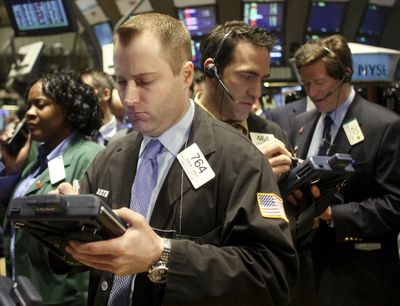Feds re-rescue Citigroup
Restructured bailout makes government the flailing bank’s largest shareholder

WASHINGTON – The U.S. government will exchange up to $25 billion in emergency bailout money it provided Citigroup Inc. for as much as a 36 percent equity stake in the struggling bank, greatly increasing the risks to taxpayers.
The deal announced Friday by the company and the Treasury Department represents the third rescue attempt for Citigroup in the past five months. It’s contingent on private investors agreeing to a similar swap.
The administration decided to restructure the bailout package for Citigroup again in the hopes that converting $25 billion of preferred shares into common stock would give investors more confidence the bank has sufficient capital reserves to withstand mounting losses on its holdings of mortgages and other loans. While the conversion to common stock will dilute current shareholders’ investments, a wider equity base could calm investors since there would be more reserves in place to guard against further losses as the economy sours.
Besides a stronger capital base, the company is getting a critical boost to its cash flow as it forgoes its 4-cent annual dividend on its common shares. That is giving Citi an additional $2.18 billion a year. The bank will also no longer pay the 5 percent dividend it owed on the government’s preferred shares that have converted to common stock.
But the deal doesn’t affect one of Citi’s greatest problems, the billions of dollars in failed mortgage-backed securities that still sit on its books.
The Treasury Department said the transaction requires no new federal funds. For now, the remaining $20 billion of the government’s investment will be converted into a new class of preferred shares that will pay an 8 percent annual dividend.
The conversion will make the government the largest shareholder in Citigroup, but company officials said they still expect to call the shots. “We … remain in charge of the day-to-day operations of the company and none of that changes,” chief executive Vikram Pandit said in a conference call with reporters.
The plan comes one day after the Obama administration laid the groundwork in its first budget request for greatly increasing the size of the $700 billion bailout program that Congress passed in October.